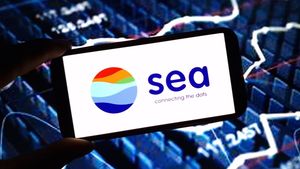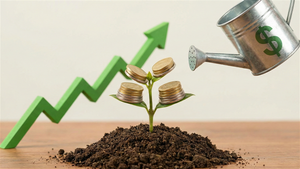The Future of Company Reporting is Integrated
SOURCE: SAP
DESCRIPTION:
Next week, business, political, and social leaders will meet at the annual World Economic Forum in Davos against the backdrop of unprecedented global challenges, including climate change.
At SAP, we believe companies need to put sustainability at the heart of their corporate business strategies and embed sustainability data into their end-to-end processes in order to generate the insights they need to move decisively to a more inclusive, regenerative, and net-zero economy.
An integrated report that combines traditional financial indicators and non-financial data — including environmental, social, and governance (ESG) reporting — is an essential element in this journey. This year, SAP celebrated the publication of its 10th integrated report, and I wanted to share some of the lessons we have learned along our way.
Integrated reporting is based on the principle that any organization can maximize value by serving the interest of all stakeholders, including investors, employees, and customers. But it’s not just a reporting exercise; integrated reporting requires an integrated business strategy, one that creates value beyond just financials, balancing short-term gains with long-term strategy and investment.
I am proud that SAP was one of the first European companies — and the first software company in the world — to publish an integrated report. We have been in the vanguard of a movement that is changing the way companies are measured and valued, a movement that is addressing many deeply rooted social problems and existential threats facing our planet.
The SAP Integrated Report 2021 reflects our sustainability management performance and provides transparency to the market, alongside other stakeholders, on both financial and non-financial indicators, as well as the connection between the two. It includes a wealth of non-financial indicators such as Business Health Culture Index, Leadership Trust Index, women in management, and Scope-level carbon emissions.
Providing visibility into relevant metrics equips companies with the insights required to comply with new regulations, safeguard their license to operate, meet increasing stakeholder expectations, cut costs, and recognize opportunities for business transformation.
At SAP we measure our success by five main indicators: revenue and operating margin that show past performance, employee engagement, customer loyalty, and carbon impact that help us understand what we can achieve in the future. Assigning a monetary value to some of these factors increases their relevance.
In 2012, when we first adopted this integrated approach to ESG and financial reporting, only six percent of our institutional investors focused on ESG. Today, based on our internal analysis of our shareholder base, that figure is 40%.
How did we get here? Integrated reporting naturally builds on the long history of corporate accounting. Early accounting can be traced back more than 7,000 years to ancient Mesopotamia and is said to have developed alongside writing, counting, and money. The early Egyptians and Babylonians created auditing systems, while the Romans collated detailed financial information.
Since then, the father of modern accounting, Luca Pacioli, described the system of double-entry bookkeeping, which remains the foundation of modern corporate reporting. But nothing stays the same indefinitely.
Corporate accounting systems have evolved to meet the needs of the increasingly complex ownership structures and transactions that emerged in the wake of the Industrial Revolution and shifting shareholder and societal concerns. Steps toward expanding the range of information published annually by companies came in the late 1980s, when the first corporate environmental reports began to appear.
Many companies still publish separate financial and sustainability reports, but beginning in the mid-2000s, there was a recognition that an organization’s true value is determined by a wider range of factors, including allegedly “soft” metrics. For example, diversity drives better decision-making and improved financial performance.
As sustainability rose to the top of the corporate agenda, business leaders recognized that a separate sustainability strategy would no longer suffice. Instead, companies must ensure their entire business strategy is sustainable and that business processes align with ESG reporting. This reflects the trend toward stakeholder capitalism, where business leaders consider the broader interests of investors, employees, society, and the planet.
Meanwhile, the COVID-19 pandemic has accelerated digital transformation and placed a premium on agility, resilience, and business process intelligence. By combining financial and non-financial ratios and measures, companies can transform their business processes and gain the data transparency they need to achieve their sustainability targets.
To help our customers to perform at their best and meet the growing requirements of regulators and institutional investors focused on ESG, we launched a new offering in January 2022. SAP Cloud for Sustainable Enterprises brings together a comprehensive portfolio of solutions that enable businesses to holistically manage their sustainability performance.
Beyond supporting our customers, we are strengthening our own commitments and announced that we will accelerate our goal to achieve net-zero emissions across our value chain by 2030 — 20 years earlier than expected. We’re also helping to standardize non-financial measurements by working with organizations such as the Value Balancing Alliance (VBA), World Economic Forum, the United Nations Global Compact (UNGC), and the Global Reporting Initiative (GRI).
For SAP, our integrated reporting journey continues. Our focus remains on how we can improve and expand, but also continue to ingrain non-financial metrics into decision-making and how we run our business.
One thing, however, is clear: the advantages of integrated reporting and a holistic approach to company management are indisputable. Companies that embed sustainability into core business processes consistently outperform their competitors. And ultimately, integrated reporting not only considers the needs of all stakeholders, but also how companies can turn emerging social and environmental risks into business opportunities.
KEYWORDS: SAP, World Economic Forum, WEF22
![]()
More News
View More




Recent Quotes
View More
Quotes delayed at least 20 minutes.
By accessing this page, you agree to the Privacy Policy and Terms Of Service.